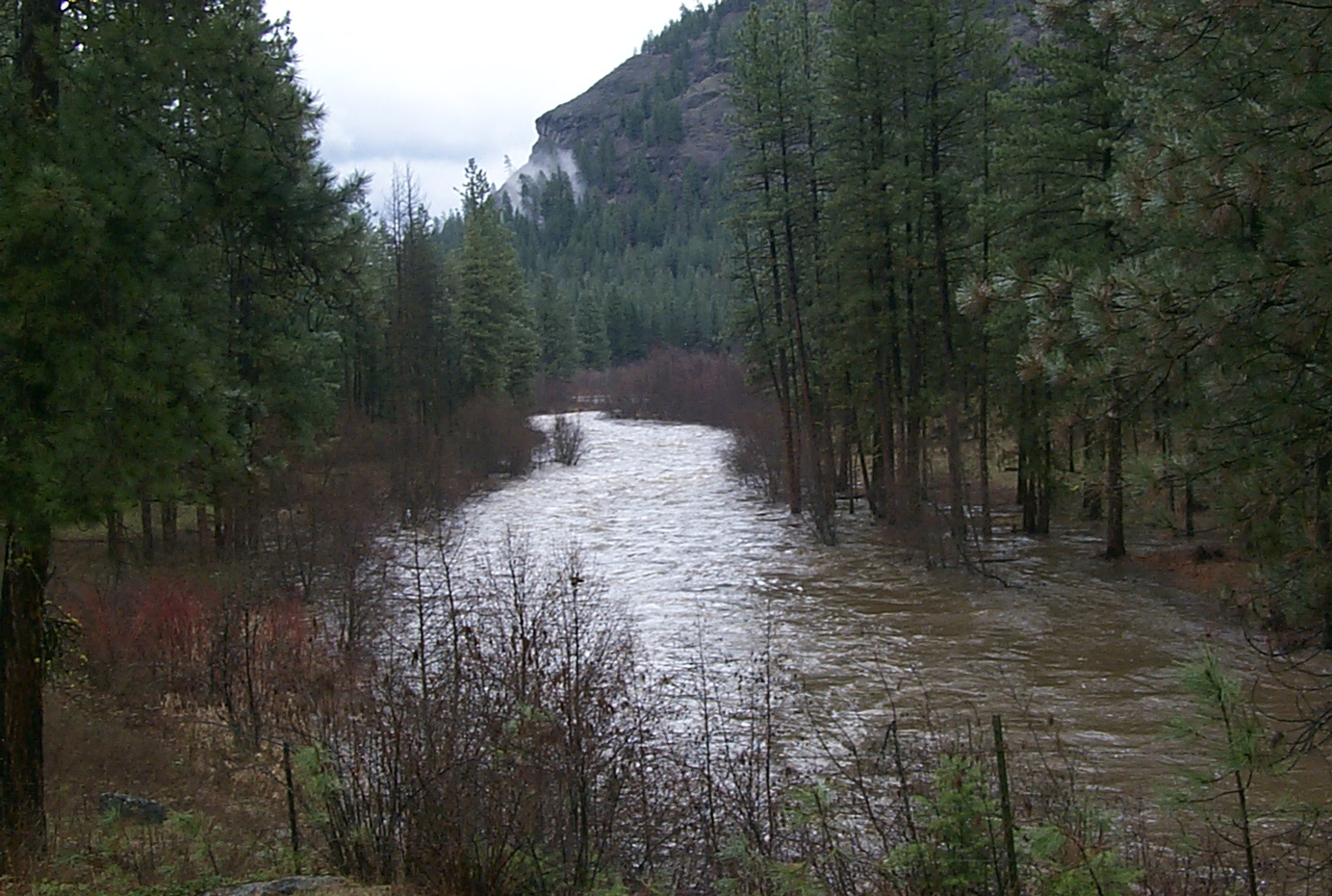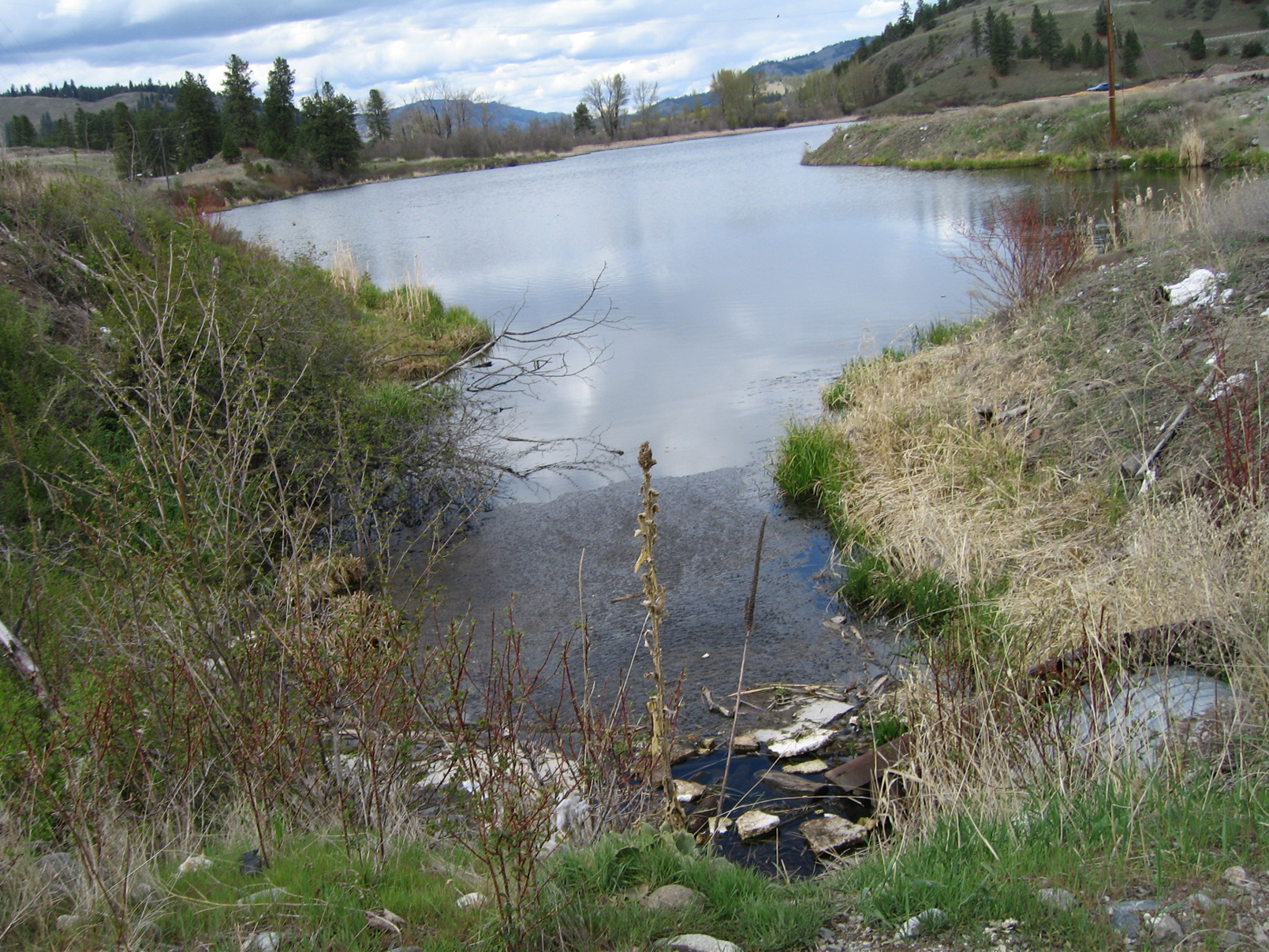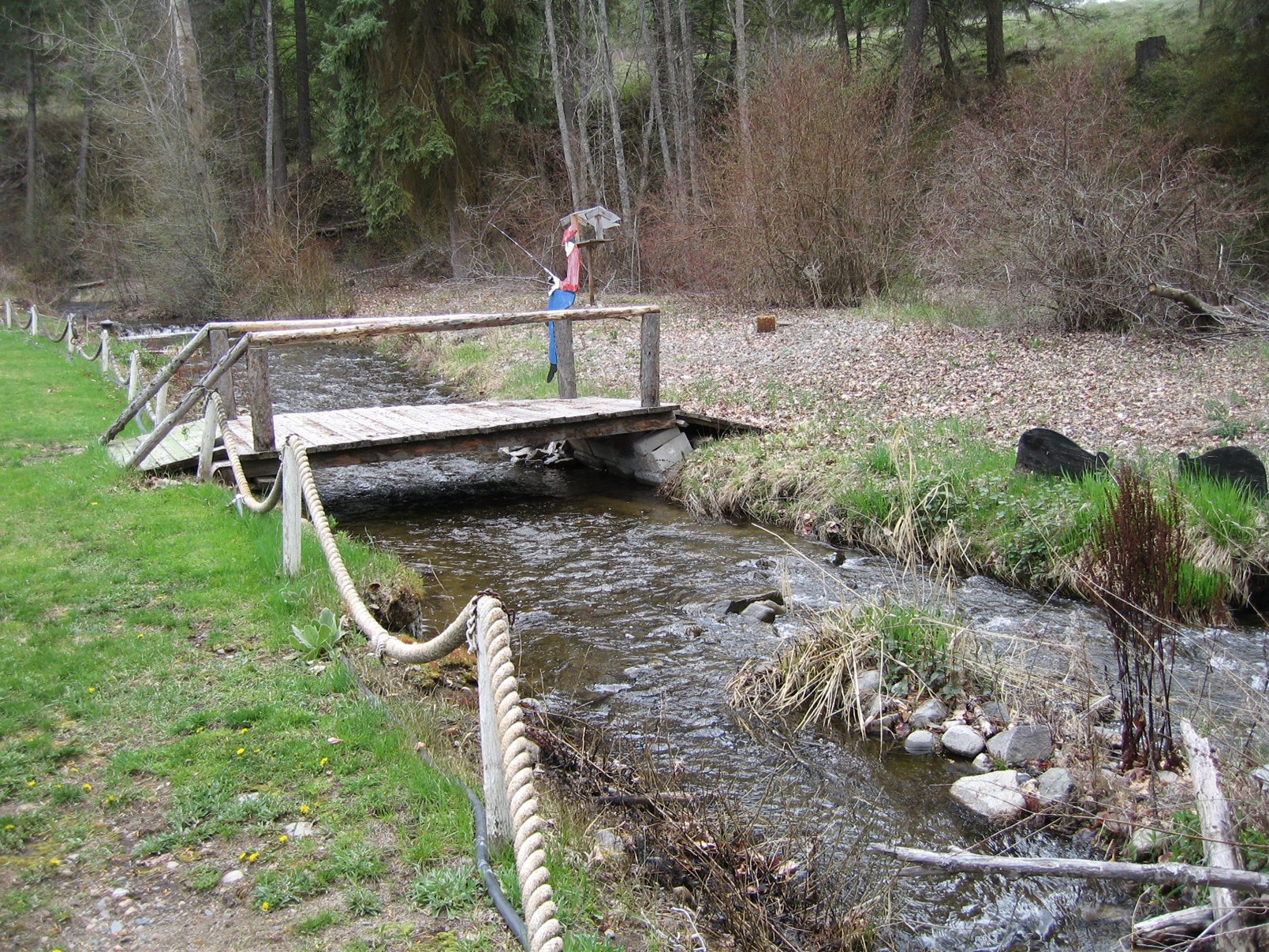Nonpoint Source Pollution Control
Nonpoint source pollution is pollution that cannot be attributed to a specific point location. Examples of nonpoint source pollution includes: sediment from improperly managed roads, crop and forest land, or eroding streams; bacteria from livestock and faulty septic systems; excess fertilizers, herbicides and insecticides.
ETD works to reduce nonpoint source pollution by administering Washington State and Tribal Hydraulic and Forest Practices Codes. The Program also applies for competitive funding through the Clean Water Act to perform restoration projects. Projects have been completed in the Little Nespelem, Omak Creek and Kartar Valley watersheds. Restoration work around Buffalo Creek will occur during Summer 2014




